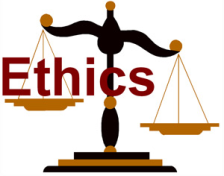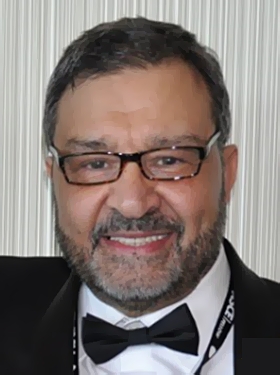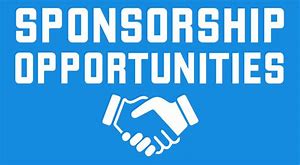The Evolution of Engineering Ethics: ASCE’s Code of Ethics

Dr. Z. wishes all ASCE-NCS eNewsletter readers health, happiness and prosperity in 2022. We trust, over the past several weeks, you all enjoyed spending time with family and friends. One of the things I love most about this time of year is the opportunity to catch up with those who I haven’t seen or spoken to in a while.
For this month’s article, I can’t think of a better title than “Engineering Ethics” and of course, I will use ASCE’s Code of Ethics as our main source in this article.
We live in a troubled, confused global society; one need only look over the East River and the absence of what was once there as a “monument” to the failure of values in our world. The engineer is a critical player in the modern technological society. His or her values and how he or she participates in the global economy is and will be a critical component of the wellbeing of our society. As engineering students, engineers and educators, we have a special role to play in forming the ethical values of the engineers of the future and tempering them in the application of ethics to their practice of the profession of engineering.
The Evolution of ASCE’s Code of Ethics
The Code of Ethics is the foundation of the application of the civil engineering profession to the client and the public at large. The codification of ethics has taken many forms: from the Ten Commandments, to the Doctrine of Socrates, to Nicomachean Ethics, to the Code of Hammurabi, to the American Constitution, to the Golden Rule, to the ASCE’s Code of Ethics tailored to the professional civil engineer. Between 1877 and 1914, the Society’s Board of Directors was very conservative and believed that ethics was a matter of an engineer’s personal responsibility and honor and not appropriate for a written code. In 1914, however, a special committee of the Board of Directors was appointed to draft a Code.
In 2008, ASCE published its first guide on ethics titled “The ASCE Code of Ethics, Principles, Study, and Application.” This guide discussed what a code of ethics is and how it applies to one’s professional and personal life. This first guide was written by Mr. Eric L. Flavell, P.E., FellowASCE as a gift to the Society and the profession so that we can continue to earn the public’s trust as we work to improve our quality of life. Help and support for the guide were provided by the Committee on Professional Practice, the Committee on Business Practices, and a Blue-Ribbon Panel to review the relevancy, content, and quality of this document.
Then the official code on ethics was published and adopted in 1914. The ASCE Code of Ethics, https://www.asce.org/-/media/asce-images-and-files/career-and-growth/ethics/documents/asce-code-ethics.pdf is now a model for professional conduct for all ASCE members.
The most recent ASCE’s Code of Ethics was updated on October 26, 2020 and starts with PREAMBLE “The latest Members of The American Society of Civil Engineers conduct themselves with integrity and professionalism, and above all else protect and advance the health, safety, and welfare of the public through the practice of Civil Engineering.”
Fundamental Questions on Ethics for Engineering Students
The ASCE’s First Guide on Ethics included more than thirty questions and answers for those new to ethics as well as those who have been learning and applying ethics all their lives. The following questions are intended to be thought provoking, with purposely short and concise responses. Each of these questions could be the source of extensive discussion. The intent is to expose the reader to the breadth of ethics, the importance of ethics, and to start the process of a serious and in-depth
- What is a Code of Ethics?
- Why do we need a Code of Ethics?
- The Code of Ethics is focused on how many constituencies?
- How should a Code of Ethics be used?
- Where does ethics come from?
- How does the Code of Ethics apply to my professional life?
- How does ethics apply to my personal life, outside of my professional life?
- Is everyone’s ethical focus the same?
- How do you judge others’ implementation of ethics?
- Why is ethics important?
- How does ethics impact leadership?
- Is ASCE’s Code of Ethics the same as everyone else?
- What should I do if I observe unethical behavior?
- What if my ethical position is different from someone else’s?
- Is compromise good ethics?
- Has ethics always been here?
- Who enforces ethics, and how is it done?
- Aren’t laws the same as ethics?
- Can I have more than one ethics?
- How do others see my ethics?
- What is the impact of ethics on the public’s view of the civil engineering profession?
- How do ethics impact my career?
- How can ethics impact my life?
- When I tried to apply ethics, it cost me that big project!
- How do I get the best ethics?
- Can I buy ethics?
- Is ethics public or personal?
- How can I demonstrate ethical commitment?
- Is ethics based on a cultural or religious affiliation?
- Is ethics just for me, or is it for others too?
- Is there something that can help me analyze and resolve an ethical problem?
Not only ASCE but also other professional organizations provide many sources of information that evaluate and teach how to apply ethics in your daily personal and professional life. ASCE’s website lists many ethics resources at https://www.asce.org/career-growth/ethics. The list includes both suggested reading materials and resources for self-study.
I would like to end this month’s article with a paragraph from “ASCE’s Discussion on Ethics.”
“The only things that an individual truly owns and controls are his/her thoughts, actions, memories, and integrity. Everything else in life is borrowed. Choose your actions thoughtfully and responsibly.”
Until next time,
Ahmet Zeytinci, P.E.
This email address is being protected from spambots. You need JavaScript enabled to view it.
Risk Irrationality: How COVID-19 Changed the World and How Enterprise Risk Management Deflates Conspiracy and Irrationality the First Time
Allianz Global Corporate & Specialty (AGCS) is a leading global corporate insurance carrier. Each year they conduct a survey of global businesses that identifies the ten most important risks to business and industry. The 2020 Allianz Risk Barometer identified cyber incidents, business interruption and changes in legislation and regulation as the three most important global risks. Pandemic risk was nowhere to be found among the risks of concern. The 2021 Allianz Risk Barometer identified business interruption, pandemic outbreak, and cyber incidents-dubbed the COVID trio-as the three risks of greatest importance. COVID was a game changer for every organization on the planet and it was not on the radar for most businesses.
Many years ago, a college instructor related the apocryphal tale of a fictional US Patent office employee who was supposedly tasked with approving the production and use of the automobile. One night he dreamed of a world where this new invention made it possible for people to spend more time with friends and family, see new places, do jobs they otherwise could not do, and earn a good living. But then the dream turned on him and he saw forests and plains cleaved in two by asphalt ribbons, a sky clouded by pollution, landscape dotted with the carcasses of old automobiles, over 35,000 deaths per year, and bodies horribly broken and mangled. How could he approve such a wondrous invention that came at such a high cost?
We live in the world that fictional fellows dreamed of. We accept all the risks associated with the automobile because they have always been part of our lives. We cannot imagine a world without the freedom and benefits the automobile offers. The Allianz Risk Barometer is unlikely to ever consider the automobile a salient risk. It is a classic example of our irrationality about risk. Instead of addressing the guaranteed annual loss of over 35,000 lives in the United States alone, we fixate on a more salient risk. On April 13, 2021, CDC and FDA recommended a pause in the use of Johnson & Johnson’s Janssen COVID-19 Vaccine. After nearly 7 million doses were administered in the United States, a small number of reports of a rare and severe type of blood clot had been reported in people who received the vaccine. All reports occurred among women between the ages of 18 and 48.
The April 15, 2021 edition of the New York Post said that decision was making mass vaccination more difficult and it had put a hold on New York City’s home-vaccination program for the elderly and disabled. It also charged the decision with tanking public confidence in the safety of J&J’s vaccine and enabling anti-vaxxers to use the pause to fuel conspiracy theories about all brands of the lifesaving shot. If you’re vaccinated, a car trip is a bigger risk to you and others. About 100 Americans are likely to die in car crashes today, while new federal data suggest zero or one vaccinated person will die from COVID today.
We live in a world of risk and yet many of us, individuals and organizations alike, are irrational when we think about risk. That is ignorance that comes at a high price for individuals and organizations. As we struggle to return to some semblance of normal, far too many organizations are relying on hope as their principle recovery strategy. Hope is not a strategy. Enterprise risk management (ERM); however, is a salient strategy for these times.
Risks threaten an organization’s ability to achieve its most important objectives, as the COVID trio has proven around the world. The purpose of ERM is to develop a holistic, portfolio approach to managing an organization’s most significant risks and keeping them within the organization’s risk appetite. Significantly, the “E” in ERM signals the top-down, enterprise view of all the significant risks that threaten the organization’s strategic objectives as a distinguishing characteristic of this approach to risk management. Now, more than ever, an effective ERM process should be an important strategic tool for organizational leaders at all levels. As an organization’s top management learns to become more proactive about real and potential risks on the horizon they can better navigate the risks that might emerge and derail their strategic success.
Engineering organizations need professionals trained in ERM and the risk analysis sciences in order to be prepared to respond to the risky environment we all find ourselves in. Notre Dame of Maryland University (NDMU) offers a fully online ten-course Master of Science (MS) in Risk Management. Alternatively, a six-course Post Baccalaureate Certificate (PBC) in Risk Management is also available. This program is unique among risk management programs in its focus on risk analysis science (Aven, 2018), rather than on a more-narrow disciplinebased approach to risk management common to other universities. This approach assures that engineering professionals from any community of practice will gain practical, insightful, useful, and adaptable knowledge of risk management, risk assessment, and risk communication.
NDMU’s risk credentials enable its graduates to:
- Introduce the best practice techniques of risk management and risk analysis science to their organizations;
- Acquire the skills required to manage risks to avoid loss and to take prudent risks for potential gain;
- Build qualitative and quantitative risk assessment skills;
- Communicate effectively in crisis and risk situations that threaten your organization or its constituents and stakeholders;
- Conduct oneself ethically in situations where systems breakdown and rules of conduct are challenged; and,
Introduce a risk management framework to risk-management naïve organizations or to enhance the effectiveness of existing risk management practices.
Courses are taken one at a time. The recommended sequence of courses begins in the fall with Risk Management followed by Risk Assessment, spring courses are Uncertainty and Quantitative Risk Assessment. The two summer courses are Risk Communication and Ethics and Risk Governance. This sequence completes the PBC. The second fall comprises Enterprise Risk Management and Managing Together followed by Adaptive Leadership and Decision Making Under Uncertainty in the second spring to complete the MS degree.
Here are some reflections from students who have graduated from the program:
- “Relevant, challenging, timely, so aligned with job, use content at work on daily basis. Helping me do the job better.”
- “I had almost no background in this field. I now have resources and knowledge that can assist me in my current job and possibly applying for jobs that require this knowledge even more directly.”
- “I now have knowledge of uncertainty that I can apply in making recommendations to Risk Managers, especially in the ability to resist giving a one-dimensional answer to a risk management question.”
- “One obvious measure of course value is if the material can or will be used on the job. Not only have I applied the lessons learned at work but also have shared what I have learned with co-workers.”
For more information visit https://online.ndm.edu/online-degrees/m-sin-risk-management. For questions you may contact Professor Yoe at This email address is being protected from spambots. You need JavaScript enabled to view it..


